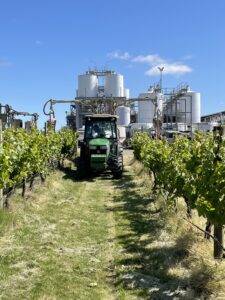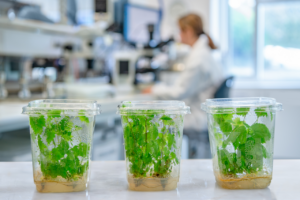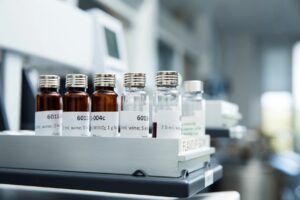General information about exports
Every wine leaving Australia as part of a consignment of more than 100 litres requires approval from Wine Australia. Affinity Labs can supply the analytical requirements for export. When exporting wine to a country without a standardised certificate, contact our Customer Service team who will be happy to work through your specific export with you to help make the process as simple as possible. For information regarding Product Registration through the Wine Australia Licensing and Approval System (WALAS), labels or any other export documentation, please contact Wine Australia:
Telephone: +61 8 8228 2000
Facsimile: +61 8 8228 2066
E-mail: exports@wineaustralia.com
Website: http://www.wineaustralia.com
Useful links
Analyses for export
The analysis required for the ‘Product Registration through the Wine Export Approval System’ is referred to as a ‘Certificate of Analysis’. To obtain a ‘Certificate of Analysis’ for export approval, please send 2 x 750 mL bottles of each wine to Affinity Labs with a completed online order form. Some countries, such as Brazil, Japan and Europe, require additional export certificates. These certificates have specific analysis requirements, which can be performed by Affinity Labs.
Export to Europe
Wines destined for Europe require a VI1 certificate of analysis in addition to the compulsory Export Approval components which are included in our Certificate of Analysis. There are two different types of VI1 certificates; packaged and bulk. The analytical requirements differ for each certificate.
Is all the analysis I need included in a standard export report?
Please be aware that your client/importer can sometimes request analyses outside of the standard analytical requirements for that certificate. Please ensure you request any additional tests not included in the standard certificate. Additional testing could include:
Ethyl carbamate testing
Ethyl carbamate and urethane is formed during the production of wine resulting from the reaction between urea or other related precursors and ethanol. Urea is derived largely from the yeast metabolism of arginine, which is an abundant amino acid in grape juice. The rate of production of ethyl carbamate is influenced by the concentration of urea and other precursors and temperature. Wines made from grape varieties which contain high levels of arginine can potentially have relatively higher levels of ethyl carbamate. In the production of fortified wines, partially fermented must is fortified at a time when the concentration of urea is high. This can lead to higher levels of ethyl carbamate in fortified wines relative to table wines. Ethyl carbamate is a suspected mild carcinogen, the maximum level is, therefore, limited by regulation in many countries.

We offer tailored shelf-life testing services to food and beverage producers and suppliers.
This includes:
Lorem ipsum dolor sit amet, consetetur sadipscing
Lorem ipsum dolor sit amet, consetetur sadipscing
Lorem ipsum dolor sit amet, consetetur sadipscing
Lorem ipsum dolor sit amet, consetetur sadipscing
Lorem ipsum dolor sit amet, consetetur sadipscing
Lorem ipsum dolor sit amet, consetetur sadipscing
Lorem ipsum dolor sit amet, consetetur sadipscing
Lorem ipsum dolor sit amet, consetetur sadipscing
Enquire
Articles & case studies

The benefits of agrochemical testing for wine grape growers
Managing the health and productivity of grapevines …
Using consumer acceptance studies to deliver market-ready products
Consumer acceptance studies help manufacturers gai …
How consumer preference studies drive product innovation and customer satisfaction
Consumer preference studies help manufacturers gai …
Grapevine tissue sampling protocol for virus diagnostics
Grapevine viruses can shorten the life of infected …
NOLO spirits – opportunities for continued growth and innovation
Australia’s beverage scene is witnessing a s …Affinity Labs’ NATA-accredited laboratories perform more than 100,000 analyses per year and have serviced the Australian wine industry since 1984. The laboratories deliver high-quality cost-effective routine, export or specialist analyses, whether it is for a single sample or a large batch of samples
Richard Davidson
Project Manager





